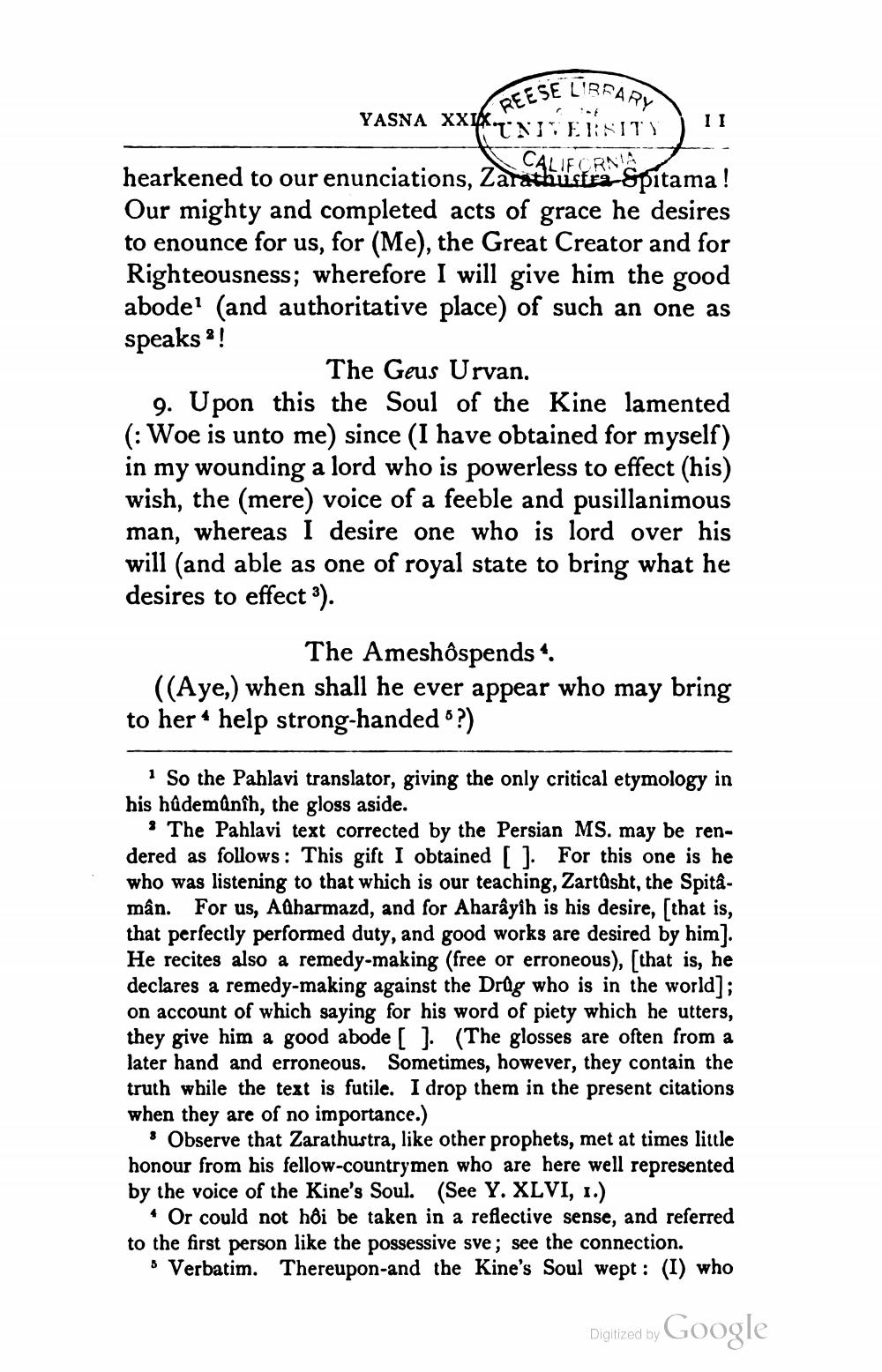________________
II
EESE LIBRARE
YASNA XXINITEKSIT) hearkened to our enunciations, Zarathustra Spitama! Our mighty and completed acts of grace he desires to enounce for us, for (Me), the Great Creator and for Righteousness; wherefore I will give him the good abode' (and authoritative place) of such an one as speaks?!
The Geus Urvan. 9. Upon this the Soul of the Kine lamented (: Woe is unto me) since (I have obtained for myself) in my wounding a lord who is powerless to effect (his) wish, the (mere) voice of a feeble and pusillanimous man, whereas I desire one who is lord over his will (and able as one of royal state to bring what he desires to effect ).
The Ameshồspends 4 ((Aye,) when shall he ever appear who may bring to her - help strong-handed o?)
So the Pahlavi translator, giving the only critical etymology in his hädemûnîh, the gloss aside.
9 The Pahlavi text corrected by the Persian MS. may be rendered as follows: This gift I obtained [ ]. For this one is he who was listening to that which is our teaching, Zartůsht, the Spitamân. For us, Adharmazd, and for Aharâyih is his desire, (that is, that perfectly performed duty, and good works are desired by him). He recites also a remedy-making (free or erroneous), (that is, he declares a remedy-making against the Drug who is in the world]; on account of which saying for his word of piety which he utters, they give him a good abode []. (The glosses are often from a later hand and erroneous. Sometimes, however, they contain the truth while the text is futile. I drop them in the present citations when they are of no importance.)
Observe that Zarathustra, like other prophets, met at times little honour from his fellow-countrymen who are here well represented by the voice of the Kine's Soul. (See Y. XLVI, 1.)
• Or could not hồi be taken in a reflective sense, and referred to the first person like the possessive sve; see the connection.
• Verbatim. Thereupon-and the Kine's Soul wept : (I) who
Diglized by Google
Digitized by




